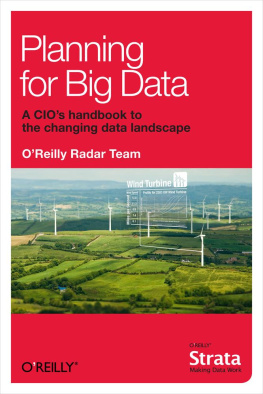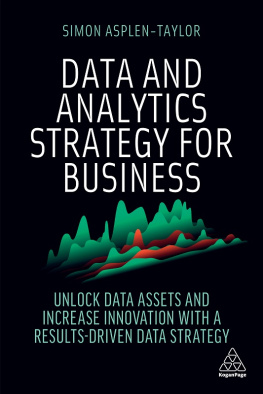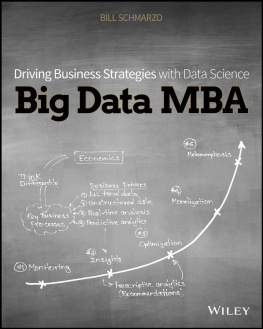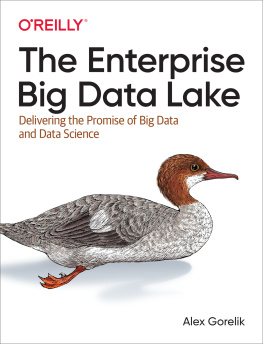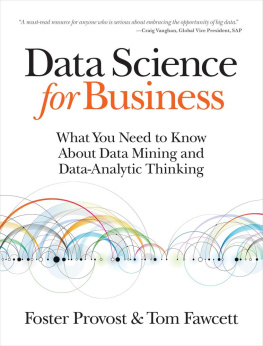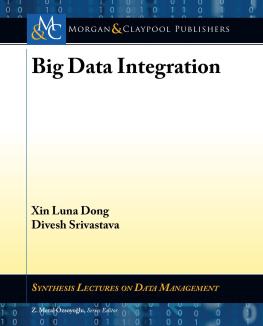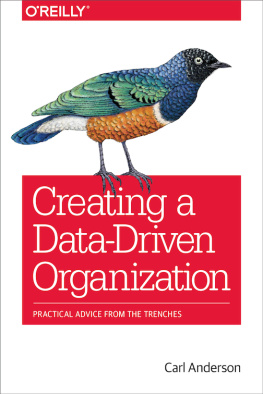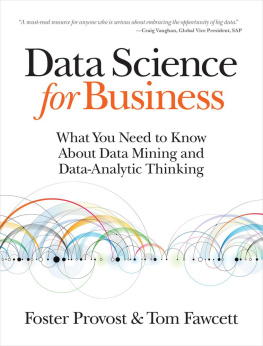DATA EMPATHY - DEVELOPING AI APPLICATIONS
FOR HUMAN AND BUSINESS AUGMENTATION
DATA EMPATHY - DEVELOPING AI APPLICATIONS
FOR HUMAN AND BUSINESS AUGMENTATION
DATA EMPATHY
FRANKI CHAMAKI
Developing AI Applications for Human
and
Business Augmentation
DATA EMPATHY - DEVELOPING AI APPLICATIONS
FOR HUMAN AND BUSINESS AUGMENTATION
DATA EMPATHY - DEVELOPING AI APPLICATIONS
FOR HUMAN AND BUSINESS AUGMENTATION
Table of Contents
DATA EMPATHY - DEVELOPING AI APPLICATIONS
FOR HUMAN AND BUSINESS AUGMENTATION
DATA EMPATHY - DEVELOPING AI APPLICATIONS
FOR HUMAN AND BUSINESS AUGMENTATION
6.6 MODEL SELECTION AND TRAINING
DATA EMPATHY - DEVELOPING AI APPLICATIONS
FOR HUMAN AND BUSINESS AUGMENTATION
DATA EMPATHY - DEVELOPING AI APPLICATIONS
FOR HUMAN AND BUSINESS AUGMENTATION
Building an
experimental
mindset and
data empathy
IN THE BEGINNING, THERE WAS AN EXPERIMENT
DATA EMPATHY - DEVELOPING AI APPLICATIONS
FOR HUMAN AND BUSINESS AUGMENTATION
I co-founded HIVERY in 2015 based on a simple $A50K experiment on vending machines. We had to convince our first customer, Coca-Cola Amital (CCA) that a data-driven way of thinking would outsmart current human ways of thinking when it comes to selecting what products to put in their vending machines. This simple experiment proved that using data in new ways had the potential to generate value that had never before been seen.
At the time, I was working as entrepreneurs-in-residence at the Coca-Cola Company in Sydney, Australia. It was a big gamble for the Coca-Cola Company to take on this new entrepreneurial approach to innovation. I co-designed the entrepreneurial program, which later came to be called the Founders Program It was scaled to over countries, each with two-person teams.
We had a simple job description too: take Cokes assets and explore Cokes problem spaces to create a new business model. Coke wasnt interested in another new beverage or marketing idea they currently have over 700,000 employees working in this field. Instead, Coke wanted to new to the world business models to be developed in the Founders Program.
In terms of McKinseys Three Horizons of Growth model (illustrated on the following page), you can think of the Founders Program as explore problem space in the Horizon while leveraging their assets (i.e. million+ fans on Facebook, more trucks than FedEx and UPS combined, and their presence in over countries excluding Cuba and North Korea). They wanted us to unpack their business problems and use a Lean Startup approach to discover a new business model to scale across the Coke system.
DATA EMPATHY - DEVELOPING AI APPLICATIONS
FOR HUMAN AND BUSINESS AUGMENTATION
When I say system, I mean the entire Coke distribution and supply chain of nearly bottling partners worldwide, as well as their relationships with retailers (for example, Walmart, Woolworths, Kroger, Aldi, Tesco, millions of corner stores, cafes, night clubs, restaurants, and petrol stations). It also includes their relationships with big global franchises like McDonalds and Subway, as well as organisations like Disney and Delta Airlines, where Coke has exclusive distribution rights.
Once our vending machines experimented with CCA proved extremely successfully, we began to build our minimum viable product (MVP) within months and word got out. We quickly began scaling our AI solution globally using a similar experimental approach which I call Data Empathy. Within months, we secured new customers in the US, and our brand was on the rise and so was the number of staff.
After continued vending operation success in Australia and the USA, CCA re-engaged us to develop new AI products.
In January 2017, CCA gave us the go-ahead to develop the worlds first AI trade promotion optimization solution. At roughly the same time, having also experienced success with our vending solution; Coca-Cola North America engaged us on developing another world-first AI application: retail category management. After several months of research and development (R&D), our AI algorithmic learning model was set to disrupt an estimated $US900B per annum retail category management industry.
DATA EMPATHY - DEVELOPING AI APPLICATIONS
FOR HUMAN AND BUSINESS AUGMENTATION
Around the same time, we won several awards: NSW Exporter of the Year (Technology) and a National Export Finalist in 2019. We were also named in Deloitte Technologys Australian Fast 2019 and Financial Timess Asia-Pacific High Growth Companies 2020, and ranked ninth in the Australian Financial Reviews Fast 2020 . Our success and recognition continued with being short- listed for the Australian Financial Reviews 2019 Most Innovative Companies list and making it as finalist to EYs Entrepreneur Of The Year. I shared this background not to show off but to give you assurance that the Data Empathy framework you are about to learn is proven not once,twice but three times and more.
Franki Chamaki
Co-founder, Marketing, Design, Lecturer, Entrepreneur, Innova- tion, EY Entrepreneur Of The Year Finalist & Coffee.
DATA EMPATHY - DEVELOPING AI APPLICATIONS
FOR HUMAN AND BUSINESS AUGMENTATION
Introduction
DONT JUST CHANGE YOUR COMPANY,
CHANGE YOUR INDUSTRY
DATA EMPATHY - DEVELOPING AI APPLICATIONS
FOR HUMAN AND BUSINESS AUGMENTATION
Did you by any chance watch the 2013 movie Moneyball? It was released at roughly the same time as my HIVERY co-founder Jason and I started our entrepreneurship-in-residence at the Coca-Cola company.
The movie saw Brad Pitt step into the role of Billy Beane, an Oakland As manager who adopts a controversial mathematical system to choose his players and reinvent his team by outsmarting the richer baseball clubs. The film was based on a 2003 book by the same name, Moneyball: The Art of Winning an Unfair Game by Michael Lewis.
The story focuses on how Billy Beane assembled his new team by redefining the player recruitment problem. He used a sabermetric method to look at undervalued players when buying players. It had never been done before. Beane not only changed his team but also the game itself. It was one line that really got me thinking:
First guy through the wall; always gets bloody
Its true; its always the ones crazy and brave enough to try something new who face resistance from their industry, customers, business partners, government and even within their own organisations.
If you had to pick one scene that summarises the Moneyball movie; it would be the scene where Arliss Howard (playing John Henry, the owner of the Boston Red Sox) explains what his new data-driven approach is doing: Threatening not just a way of doing business but threatening the game. He concludes by saying that Anybody not tearing their team down right now and rebuilding it using your model, theyre dinosaurs.
DATA EMPATHY - DEVELOPING AI APPLICATIONS
FOR HUMAN AND BUSINESS AUGMENTATION
Beanes method generated amazing outcomes; his team went on to win consecutive games the longest winning streak in American League history. More impressive was that his players cost 500% less (i.e. $US1.4m per win vs $US260K per win). He faced a lot of initial push backs and pressure from his team and even the club owner, as initially his results were not good.
Next page

